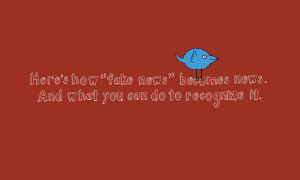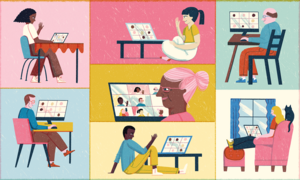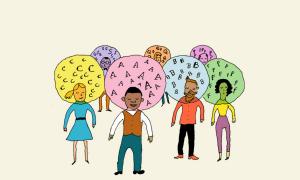Celebrating Transgender Awareness Week
November 13–19 is Transgender Awareness Week, followed by Transgender Day of Remembrance on November 20. This week, as you celebrate the diverse experiences of the transgender community, use these resources to advocate for trans students and fellow educators, whether you’re teaching in person or remotely.

Nothing About Us Without Us Is for Us

Toolkit for "Being There for Nonbinary Youth"

Supporting LGBTQ Students During Social Distancing
A Historic Election
Last week, the first Black, Asian American woman was elected vice president. We hope these resources will help you contextualize this historic moment for all students.

Madam Vice President Is a Woman of Color


More Than a Name: Teaching Historic Firsts
Maintaining Strong Communities in Polarized Classrooms
Polarizing political rhetoric didn't end with the election, and as recounts and lawsuits continue, it remains critical that educators work to maintain strong, inclusive communities in their classrooms. We hope these resources will help.

Let's Talk!

The Danger of the Story of “Both Sides”

How Does Fake News Become News?
Teaching the Election and Digital Literacy
This Media Literacy Week, it’s more important than ever to ensure your students are informed digital citizens. As Election Day approaches, your students are encountering plenty of online information about issues that affect them and their communities. Our digital literacy resources can help you teach them to evaluate and check sources for bias, interrupt hate speech, and critically analyze and discuss online information about the election.

Teaching Digital Literacy This Election Season

The Mind Online Podcast

Digital Literacy
Teaching About Voter Suppression and the 2020 Election
Voter suppression is not a thing of the past. It’s essential that students learn to identify it in history—and in this current election cycle. Including insight from Carol Anderson, John Lewis and others, these resources can help you teach about the Voting Rights Act, the historic back-and-forth fight for voting rights, the ways voter suppression manifests today and the ways young people are demanding better of the democratic process.

Teach This: The Voting Rights Act

The True History of Voting Rights
